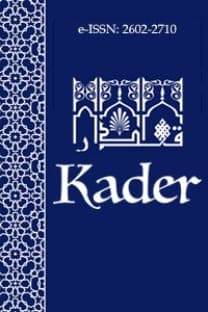The Way of Coping With The Clashing Identities: From Neo-Orientalism to The Anthropology of Muslims in the West
From the very beginning Islam and naturally Muslims have lived as fragmented entities in many parts of the world. As it is historically known, soon after the death of the prophet Muhammad the expansion of Muslims? territorial dominance started. Although they were ruling elite and had territorial dominance, they lived as minority among other faiths and cultures and developed reflexes to survive among others. Currently they are experiencing similar conditions in many parts of the world including Europe with the exception that they do not have this territorial supremacy any more. Furthermore, they have to cope with such issues as identity, immigration, ethnicity, race, etc. With their strong religious sentiments Muslims do not have to entirely submit themselves to prevailing cultural codes, instead they need to treat these lands as free market of religions and cultures, and under the impact of modern and contemporary issues they need to develop a new mindset of contemporary Islam, individualized and voluntaristic. Within this new frame, Islam becomes something Muslims voluntarily join, rather than a tradition in which they live unless they choose to have it that way. This critical process makes Muslims active partners in the life they lead and in the thought they have in their mind. Only this kind of understanding can be competitive and far-reaching. Apart from this self-image of Muslims, the west has also to develop a new frame to evaluate situation of Muslims in their land which requires the Westerners to review the traditional orientalist approach and develop an anthropological one instead, which will deeply be dealt with in this paper.
Anahtar Kelimeler:
-
-
From the very beginning Islam and naturally Muslims have lived as fragmented entities in many parts of the world. As it is historically known, soon after the death of the prophet Muhammad the expansion of Muslims’ territorial dominance started. Although they were ruling elite and had territorial dominance, they lived as minority among other faiths and cultures and developed reflexes to survive among others. Currently they are experiencing similar conditions in many parts of the world including Europe with the exception that they do not have this territorial supremacy any more. Furthermore, they have to cope with such issues as identity, immigration, ethnicity, race, etc. With their strong religious sentiments Muslims do not have to entirely submit themselves to prevailing cultural codes, instead they need to treat these lands as free market of religions and cultures, and under the impact of modern and contemporary issues they need to develop a new mindset of contemporary Islam, individualized and voluntaristic. Within this new frame, Islam becomes something Muslims voluntarily join, rather than a tradition in which they live unless they choose to have it that way. This critical process makes Muslims active partners in the life they lead and in the thought they have in their mind. Only this kind of understanding can be competitive and far-reaching. Apart from this self-image of Muslims, the west has also to develop a new frame to evaluate situation of Muslims in their land which requires the Westerners to review the traditional orientalist approach and develop an anthropological one instead, which will deeply be dealt with in this paper
- Başlangıç: 2003
- Yayıncı: Mehmet BULĞEN
Sayıdaki Diğer Makaleler
Allah'ın Varlığı Konusunda Erken Dönem İslam Teologları
Tevil: Üretici Bir Okuma Olarak Yorum
İmanda Etkin Olan Temel Unsurlar: Akıl, Kalp ve Beden
İbn Cabirol'da Tanrı, Madde-Suret ve İrade Anlayışı
Kelamcıların Metodu: Araştırma ve Değerlendirme
İki Dünya Arasında Bir Gerçeklik: İnsanın Sembol Atası Adem'in Yaratıldığı Cennet Algısı
Allah'ın Kaderine Kaçmak: Veba ve Kolera Etrafında Tedbir Düşüncesi
Kadı Abdülcebbar'a Göre Allah-İnsan İlişkisinde İlahi Yardım
